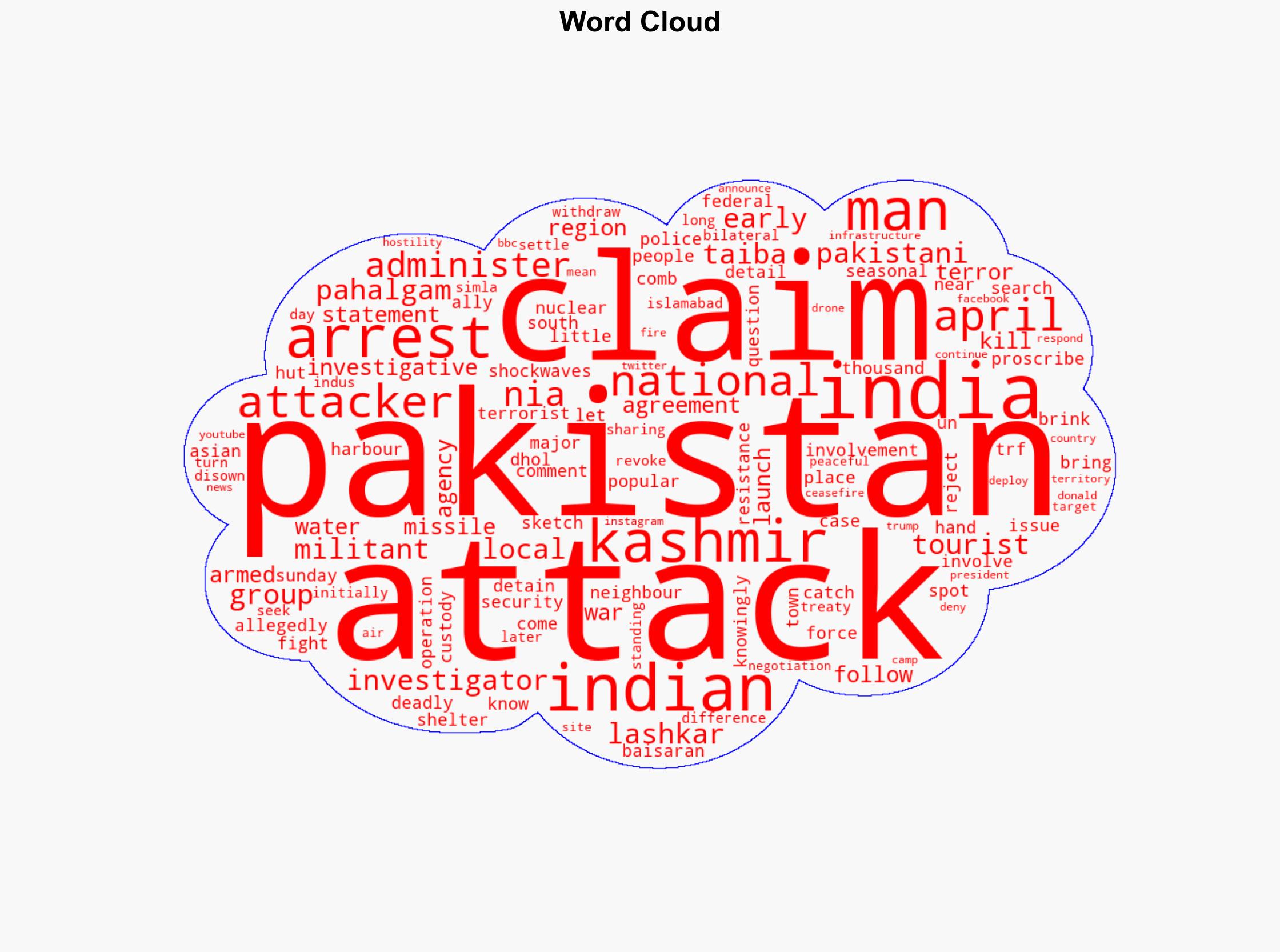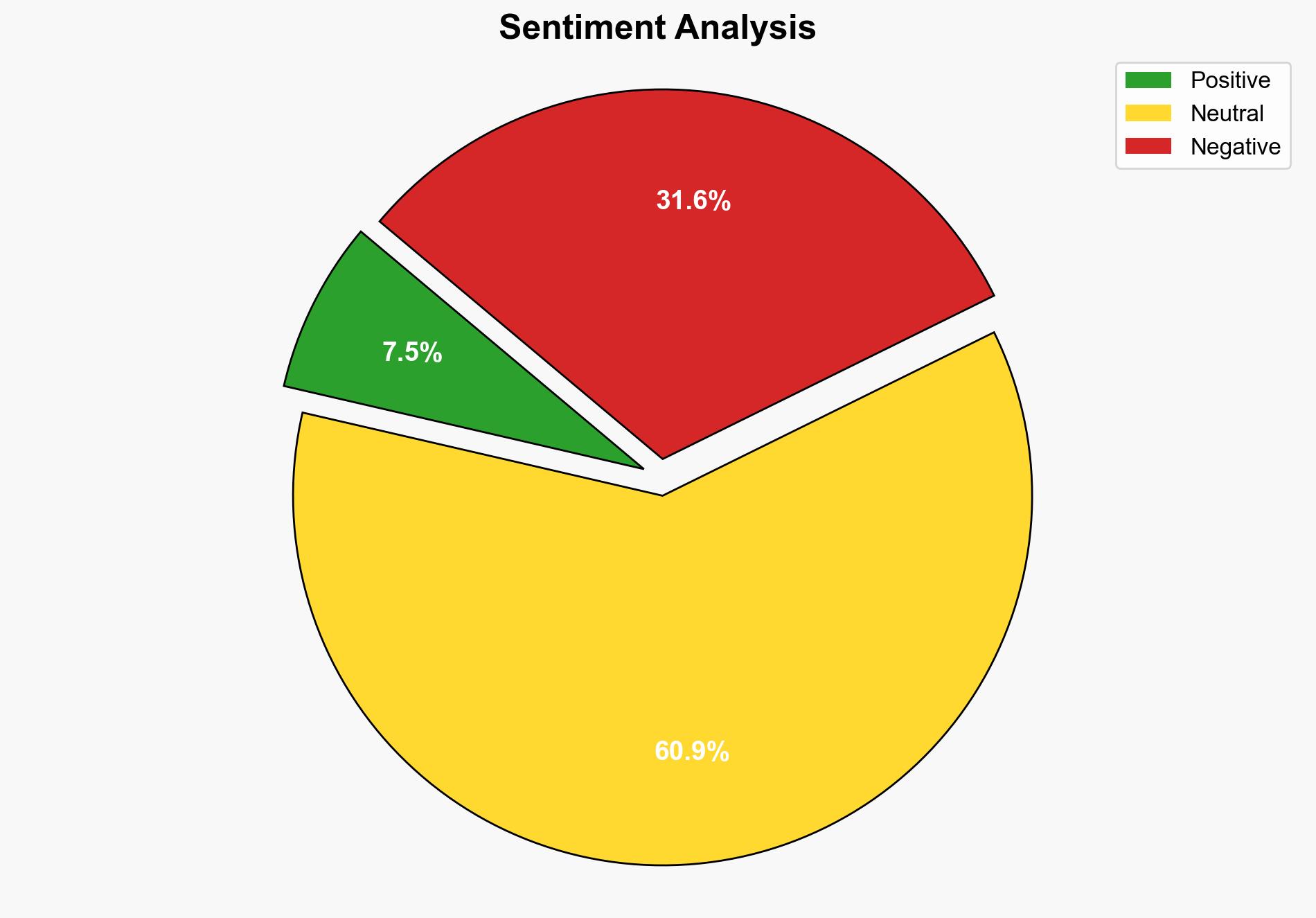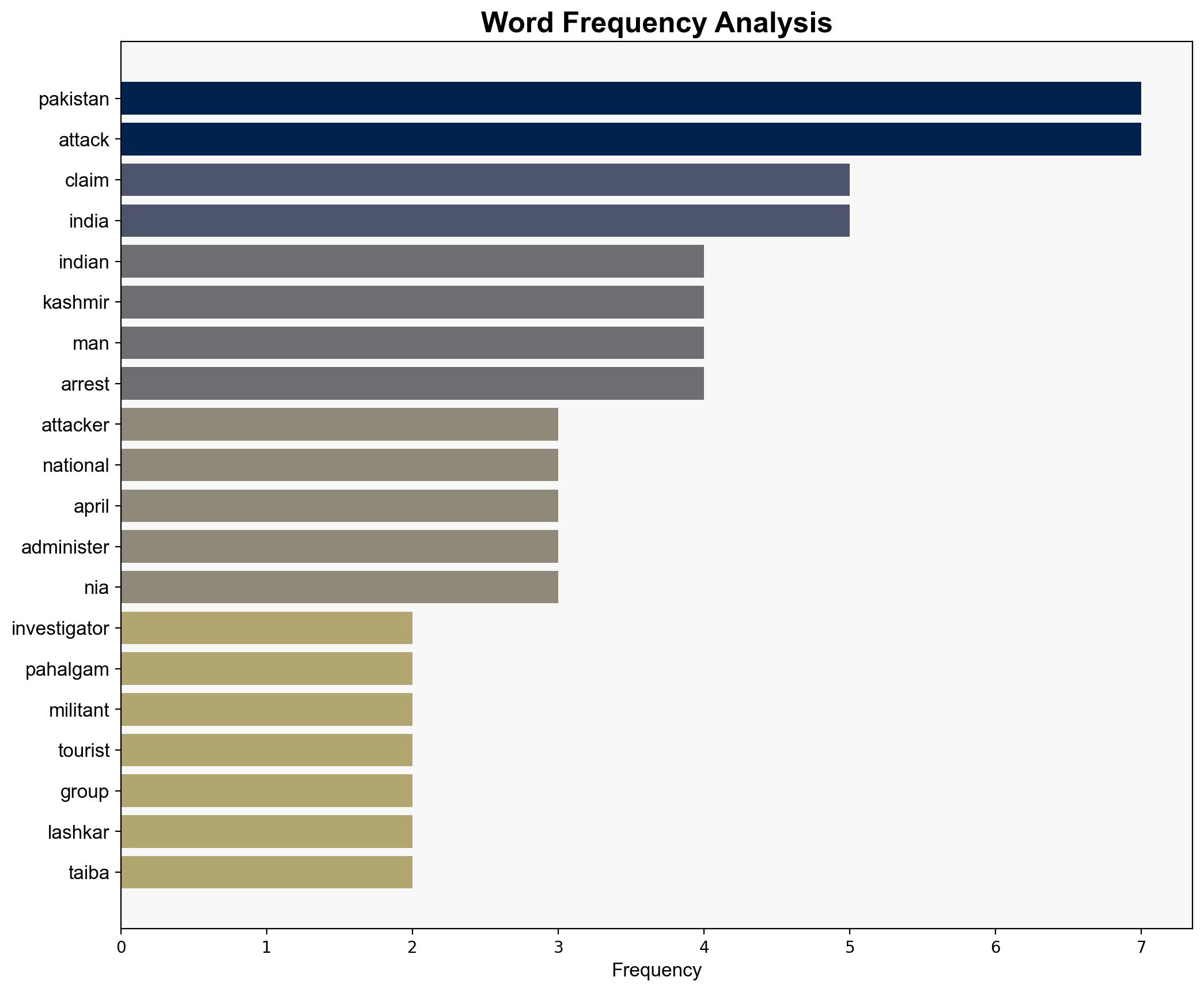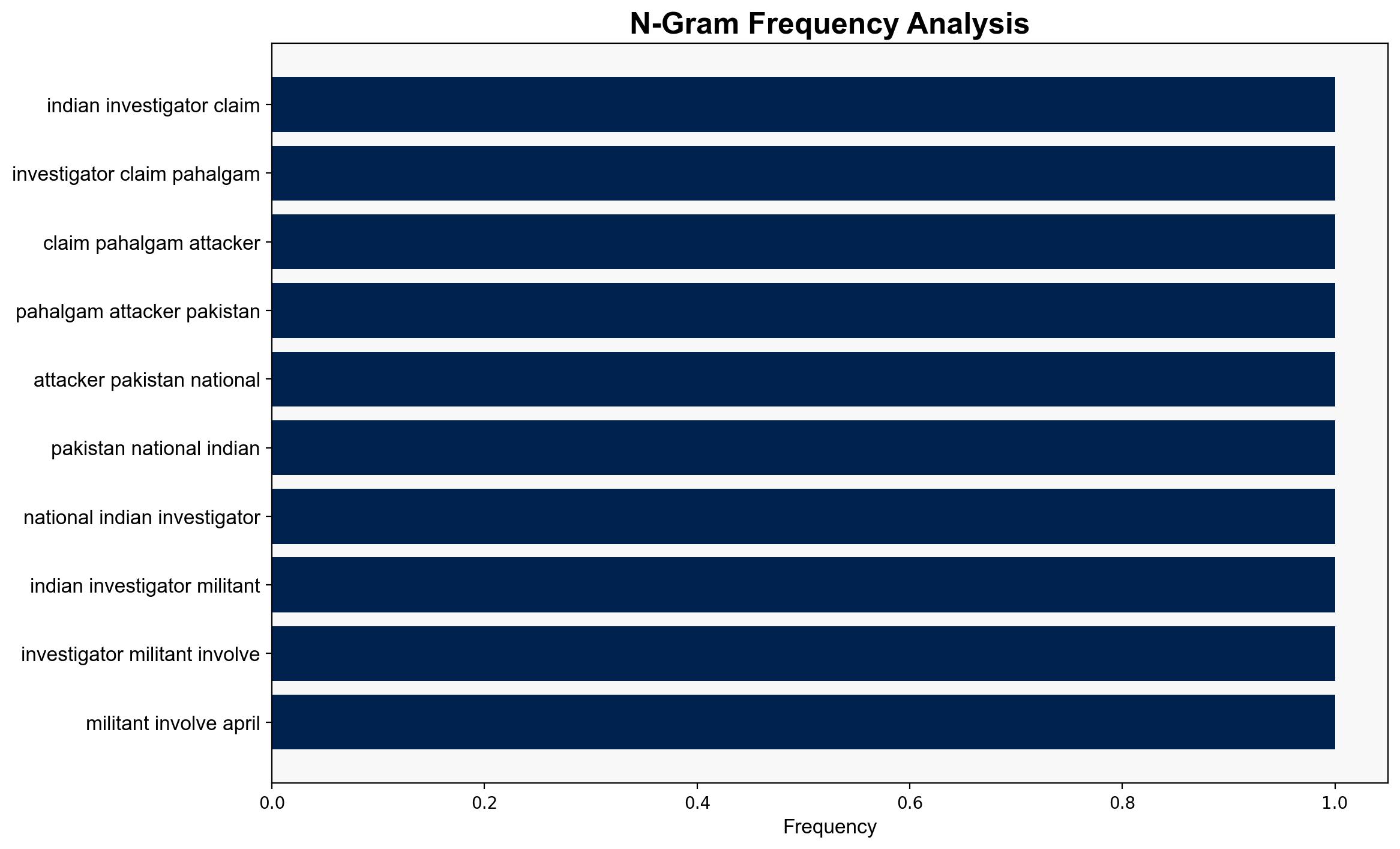Indian investigators now claim all Pahalgam attackers were Pakistan nationals – BBC News
Published on: 2025-06-23
Intelligence Report: Indian Investigators Now Claim All Pahalgam Attackers Were Pakistan Nationals – BBC News
1. BLUF (Bottom Line Up Front)
Indian investigators have identified the attackers involved in the April assault near Pahalgam, Kashmir, as Pakistani nationals linked to the proscribed militant group Lashkar-e-Taiba (LeT). This development heightens tensions between India and Pakistan, both nuclear-armed states with a history of conflict over the Kashmir region. Immediate diplomatic and security measures are recommended to prevent escalation.
2. Detailed Analysis
The following structured analytic techniques have been applied to ensure methodological consistency:
Causal Layered Analysis (CLA)
– Surface Events: The attack in Pahalgam and subsequent identification of attackers as Pakistani nationals.
– Systemic Structures: Ongoing territorial disputes over Kashmir, historical conflicts, and regional power dynamics.
– Worldviews: Nationalistic narratives and regional security doctrines influencing both Indian and Pakistani policies.
– Myths: Perceptions of existential threats and historical grievances fueling the conflict.
Cross-Impact Simulation
– Potential for increased military skirmishes along the Line of Control (LoC).
– Economic impacts due to heightened tensions affecting bilateral trade and regional stability.
Scenario Generation
– Best Case: Diplomatic engagement leads to de-escalation and renewed dialogue.
– Worst Case: Military confrontation escalates, risking broader regional conflict.
– Most Likely: Continued low-intensity conflict with sporadic diplomatic interventions.
3. Implications and Strategic Risks
The identification of Pakistani nationals as attackers could exacerbate existing tensions, leading to increased military readiness and potential cross-border incidents. The involvement of Lashkar-e-Taiba highlights ongoing terrorist threats and the need for enhanced counter-terrorism measures. The geopolitical landscape may witness shifts in alliances and increased international diplomatic interventions.
4. Recommendations and Outlook
- Enhance intelligence-sharing mechanisms with international partners to monitor and counteract cross-border terrorism.
- Engage in diplomatic channels to de-escalate tensions and promote dialogue between India and Pakistan.
- Prepare for potential scenarios by strengthening military readiness and regional alliances.
5. Key Individuals and Entities
– Lashkar-e-Taiba (LeT)
– The Resistance Front (TRF)
– National Investigation Agency (NIA)
6. Thematic Tags
national security threats, counter-terrorism, regional focus, India-Pakistan relations, Kashmir conflict





